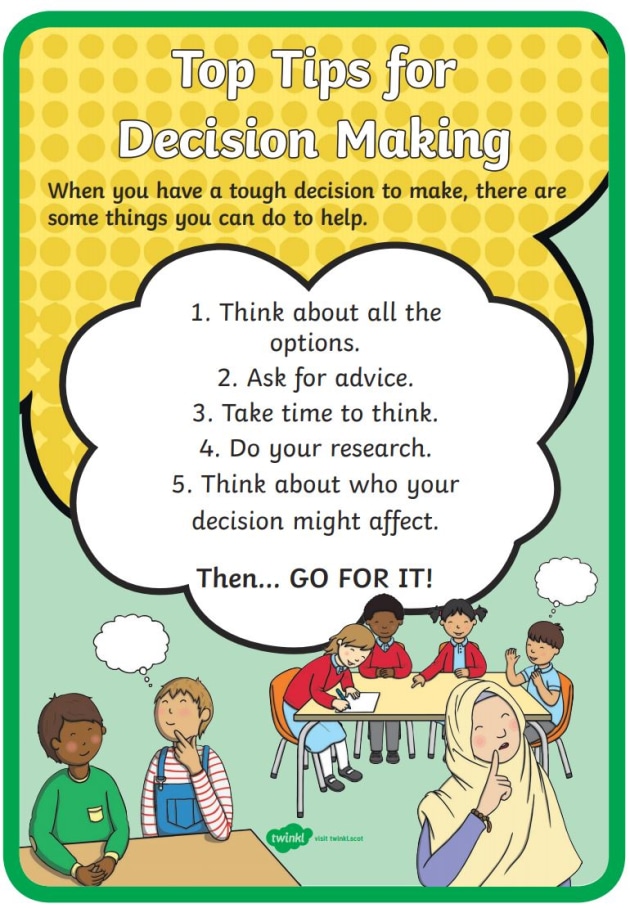In this rapidly changing environment, the capability to make effective decisions is increasingly critical than it has ever been. Regardless of whether we are faced with small choices, like which to choose for breakfast, or major transformative decisions, like switching jobs, the process of making decisions can be both empowering and daunting. Mastering the art of smart decision-making not only enhances our individual and professional lives but also shapes the results we experience on a daily basis. Understanding the psychology behind great decisions can offer us with valuable insights into our cognitive functions and actions, allowing us to make choices that correspond with our values and goals.
As we delve into this topic, we'll explore 10 proven strategies that can enhance your decision-making skills, preparing you to confront difficult choices with confidence. We'll look into the role of intuition and analytical thinking, the importance of social intelligence, and strategies to avoid decision exhaustion. From gaining the skill to analyze options effectively to recognizing the concealed costs of indecision, this piece will provide practical tools aimed at sharpening your decision-making abilities approach. Come with us as we discover how to make better decisions in pressure and enable ourselves to handle life's complexities with clearness and purpose.
Techniques for Successful Decision-Making
Making intelligent decisions is a skill that can be developed through practice and the adoption of tested techniques. One of the most effective methods is to utilize decision-making frameworks. These frameworks guide individuals through a structured process, reducing ambiguity and increasing clarity. Common frameworks are the Pros and Cons List, the SWOT Assessment, and the Decision Grid, which help in dividing down complicated choices into feasible components. By organizing thoughts and weighing options in a systematic manner, one can steer through choices with increased confidence.
Another valuable technique is to develop emotional intelligence, particularly in understanding and regulating emotions during decision-making. Emotions can significantly influence our choices, sometimes leading to rash decisions or regrettable outcomes. By recognizing emotional triggers and learning to regulate them, individuals can evaluate situations with greater objectively. Furthermore, slowing down the decision-choosing process through techniques such as mindfulness allows for a sharper perspective, facilitating better evaluations of the possible outcomes.

Lastly, cultivating a habit of reflecting from past decisions is essential for improving future choices. Reflecting on both positive and negative decisions provides insights into patterns that can be addressed for better outcomes. Keeping a decision journal can be an efficient tool; it helps record decisions made, the thought processes involved, and the outcomes. Over time, this practice fosters self-awareness and improves decision-making skills, ultimately resulting in more informed and confident choices.
Understanding the Psychological Aspects of Choices
The method of decision-making is profoundly anchored in the study of human behavior, impacting how individuals assess choices and arrive at conclusions. Mental shortcuts play a significant part, commonly leading in irrational decisions based on sentiment rather than logic. For instance, the tendency to seek confirming information can lead people to prefer data that supports their existing opinions, while neglecting data that disagrees with them. By grasping these cognitive distortions, individuals can strive to mitigating their effects and making well-reasoned choices.
Another vital aspect is the affective factor of the decision process. Emotions can blur judgment, yet they also offer important understanding into personal values and wants. Emotional awareness becomes essential, as it empowers individuals to understand and manage their emotions when confronted by difficult choices. This competence not only helps in choosing decisions that are in line with individual objectives but also encourages strength in dealing with the concern of making poor selections.
Additionally, the environment in which decisions are determined significantly affects outcomes. Tense situations can lead to rushed and likely poor choices, while a peaceful environment promotes better reflective decision-making. Methods such as mindfulness and deliberate time-outs can boost clarity and enable better evaluation of options. By deliberately developing a positive decision-making environment, individuals can improve their thinking skills and eventually improve their total decision-making capabilities.
Strategies for Confident Decision-Making
Establishing self-assurance in decision-making begins with recognizing your values and objectives. By clearly defining what is most important to you, you create a base that guides your decisions. Reflect on your long-term aspirations and synchronize your choices with your core values. Additional resources simplifies the choice-making process but also boosts your confidence, as you can believe that your choices align with your authentic self.
Another effective strategy is to gather pertinent data while steering clear of information overload. Focus on obtaining data that specifically impacts your choice and evaluate different viewpoints. This balanced approach helps you arrive at knowledgeable decisions without succumbing to analysis paralysis. Establishing a structured method for assessing options, such as pros and cons lists or decision matrices, can also enhance understanding and reduce doubt in your decisions.
Finally, engaging in mindfulness can significantly boost your choice-making prowess. By nurturing awareness of your thoughts and feelings, you can distinguish between logical judgment and fear-driven reactions. Allowing a brief pause to stop and breathe before executing a decision enables you to approach decisions with a clear mind. This practice not just reduces anxiety but also results in more thoughtful and assured decisions, ultimately enabling you to embrace the decision-making process.
